 Petzlover
Petzlover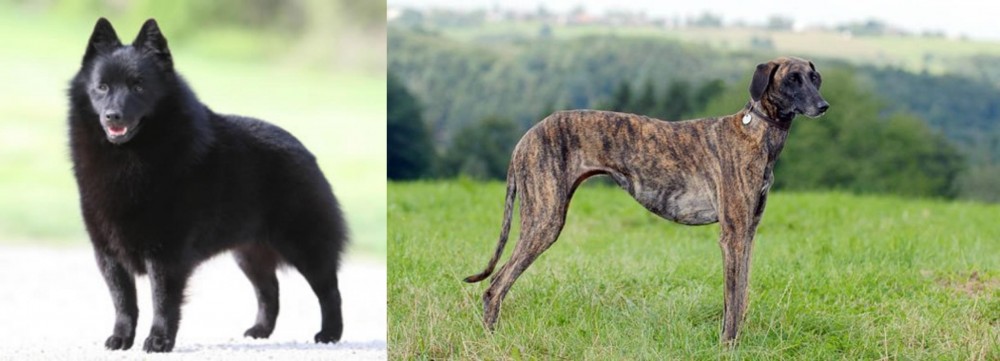 Schipperke is originated from Belgium but Sloughi is originated from Morocco. Schipperke may grow 39 cm / 15 inches shorter than Sloughi. Schipperke may weigh 19 kg / 41 pounds lesser than Sloughi. Both Schipperke and Sloughi has almost same life span. Both Schipperke and Sloughi has almost same litter size. Both Schipperke and Sloughi requires Low Maintenance.
Schipperke is originated from Belgium but Sloughi is originated from Morocco. Schipperke may grow 39 cm / 15 inches shorter than Sloughi. Schipperke may weigh 19 kg / 41 pounds lesser than Sloughi. Both Schipperke and Sloughi has almost same life span. Both Schipperke and Sloughi has almost same litter size. Both Schipperke and Sloughi requires Low Maintenance.
 The Schipperke is a small dog which hails from Belguim and where he is known as a Spitz.
The Schipperke is a small dog which hails from Belguim and where he is known as a Spitz.
There are however different theories regarding the Schipperke’s origin. It was however during the late 1800s, that Belgian Schipperke fanciers set a standard for the breed.
It was in 1888 that the first Schipperke was imported to the United States and a specialty club for the breed founded in 1905.
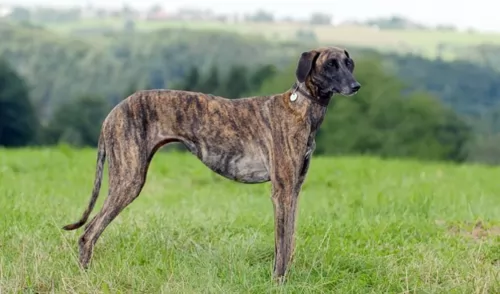 The Sloughi is an ancient dog breed, dating back to the 13th century, and coming from Morocco, North Africa.
The Sloughi is an ancient dog breed, dating back to the 13th century, and coming from Morocco, North Africa.
Much of its history isn’t well known. The dog is a member of the sighthound family. They were originally used for hunting purposes.
The world wars saw their numbers declining. The first Sloughi dog was introduced to the United States in 1973. It was in 1989 that the American Sloughi Association was founded. The dog was also recognized by the American Kennel Club as a Foundation Stock Service breed in 1997. The dog has also been recognized by FCI in the Sighthounds group.
They are rare in the United States and if you wanted to buy one of these dogs you would stand a better chance of looking for a breeder, and then there may be a waiting list.
 This little Belgian dog stands at between 25 and 33cm in height and weighs between 3 and 9kg.
This little Belgian dog stands at between 25 and 33cm in height and weighs between 3 and 9kg.
The double coat of the dog is fairly short, but thick and it comes in a range of colors, but always solid, from chocolate to apricot to black.
A typical characteristic of his is the longer-haired ruff around his neck. He also has this longer hair around the hind legs. He has sharp, erect ears and the tail is a natural bobtail or long. Most people choose to have the tail docked.
These little dogs are no pushover. He is stubborn, strong-willed and confident. They are lively, intelligent, curious and energetic and will require plenty of exercise.
Small though he is, he will certainly need training and socialization, otherwise he just goes his own way. Training him will ensure he is obedient and not so strong-willed. They get on well with children, but they tend to be aggressive with other dogs that they haven’t grown up with.
Bring him up the right way and he makes a splendid pet.
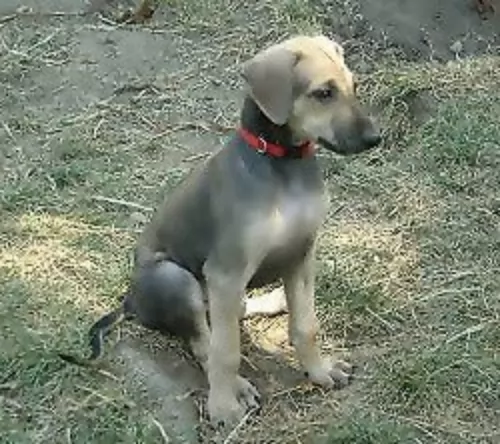 The Sloughi is a big dog, tall and slender. The head is also long and elegant. He stands between 61 and 72cm, both male and female, and he weighs in the region of 18 to 28kg.
The Sloughi is a big dog, tall and slender. The head is also long and elegant. He stands between 61 and 72cm, both male and female, and he weighs in the region of 18 to 28kg.
Looking much like a large Greyhound, the leggy dog has a noble look about him. Known for his hunting skills, he is fast and agile. In fact he is nicknamed the ‘Arabian Greyhound’.
The short straight hair makes him always look well groomed and clean. He sheds moderately throughout the year. Colors of the coat can be a fawn color, sandy, reddish brown or brindle and some come with the black mask and others without. He has medium length floppy ears and a long tail
The Sloughi loves his human family but is essentially a one-person dog. He is affectionate and loyal but can be quite stubborn, Having him trained and socialized does wonders and makes him amicable and well mannered.
He is quiet and intelligent and would prefer to be in a family with older children, and particularly with children who have been taught how to be kind and respectful with animals.
 With his bright little face, the Schipperke dog is a surprising dog, being fearless, confident, protective and devoted – everything people looking for in an excellent pet want.
With his bright little face, the Schipperke dog is a surprising dog, being fearless, confident, protective and devoted – everything people looking for in an excellent pet want.
His small size makes him able to slot into life in the city or the countryside. He is also looked upon as low maintenance. Add to this the fact that he is intelligent too. He is a feisty dog, and that’s why we say he is surprising because while he can be your sweet companion dog, he can turn into a robust, feisty, daring little panther. He’s got everything going for him to make you a splendid pet.
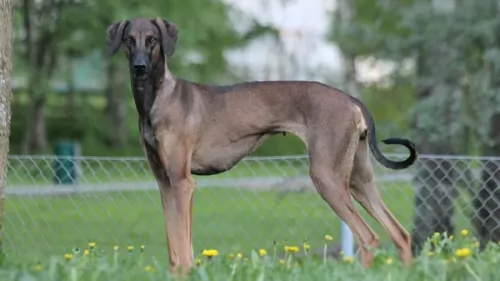 Sloughis are independent, strong willed dogs who will need a firm owner who is consistent, fair and firm.
Sloughis are independent, strong willed dogs who will need a firm owner who is consistent, fair and firm.
They're tall, slender dogs, elegant to look at and low maintenance with their short coats.
They are calm and dignified and when you make one of them your friend, companion and pet, you’re going to enjoy years of devoted companionship and loyalty.
 The Schipperke has no real health problems that he specifically gets, and he can live to be 13 years or older.
The Schipperke has no real health problems that he specifically gets, and he can live to be 13 years or older.
Over-feeding, bad food choices and lack of exercise are going to shorten the lifespan of this dog. Some dog illnesses to be aware of with the Schipperke is cancer, bloat, epilepsy, dental problems and luxating patella.
This is a condition where the knee cap of the dog moves out of its natural position. The patella moving out of the normal groove of the thigh bone can be because of genetic or traumatic reasons.
The symptoms of luxating patella include limping, skipping along as well as an abnormal sitting posture. Arthritis can also set in. Strangely, many small dogs live all their lives with luxating patella and they live like that free of pain. However for many other dogs it can mean pain and it can require surgery.
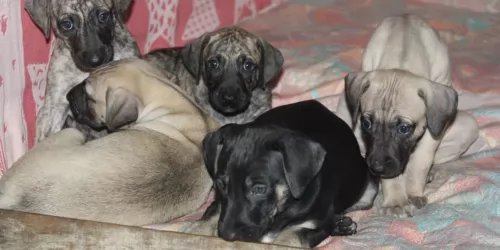 Only a few genetic conditions are found in this breed and these can be the likes of autoimmune disorders such as eye disease, Addison's disease and irritable bowel syndrome.
Only a few genetic conditions are found in this breed and these can be the likes of autoimmune disorders such as eye disease, Addison's disease and irritable bowel syndrome.
These dogs are also sensitive to anesthesia as well as some medications. Other illnesses to look out for with this large dog are cancer, bloat and diabetes.
 Dry kibble is always a good choice for dogs as its helps to keep the dog’s teeth clean. You want to make sure you buy one of the best quality foods, full of minerals and vitamins as opposed to fillers, colorants and preservatives. The food you give your Schipperke can have a huge impact on his health.
Dry kibble is always a good choice for dogs as its helps to keep the dog’s teeth clean. You want to make sure you buy one of the best quality foods, full of minerals and vitamins as opposed to fillers, colorants and preservatives. The food you give your Schipperke can have a huge impact on his health.
Your puppy will require 4 meals a day but later this becomes 2 bowls of food. To add some variety to your pet’s diet, feed him some home made food occasionally which can be added to his dry kibble twice a week.
Boiled chicken, brown rice or pasta and spinach, sweet potatoes and carrots are a healthy choice for your Schipperke.
Try and include some raw meat into the diet as this can help in fighting off horrible skin diseases. Make sure he has constant access to fresh, cool water.
Ensure regular vet checks for your dog, particularly when he is showing signs of being sick.
Check your pet for ticks and fleas. Parasites can be very bad for your pet’s health. Your dog will need all his vaccines to stave off deadly canine illnesses.
Brush your Schipperke twice a week to make sure you get rid of loose hairs. A Schipperke doesn’t shed a lot.
Keep his nails trimmed. If you are unsure on how to do this, professional groomers can do this for you.
Ears and eyes should also be checked.
He’s an energetic little dog so make sure that he gets lot of excellent forms of exercise from walking to hikes to ball games, frisbee – you name it, you won’t tire him out easily.
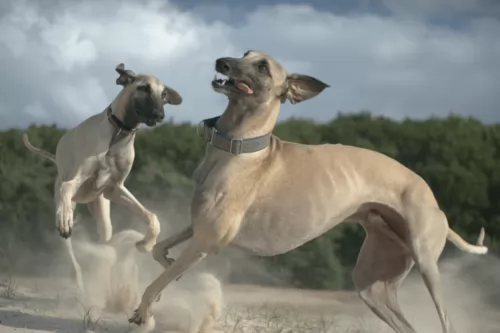 The Sloughi's coat is short and smooth and he also doesn’t have an undercoat. He is looked upon as low maintenance as he just needs a good brush every now and then to rid the coat of loose hairs and to keep him nice and shiny.
The Sloughi's coat is short and smooth and he also doesn’t have an undercoat. He is looked upon as low maintenance as he just needs a good brush every now and then to rid the coat of loose hairs and to keep him nice and shiny.
The Sloughi dog can be fed dry kibble, but it should be a top quality one – one for large, athletic dogs. The dry kibble is useful in that it helps to keep his teeth clean.
To add some tasty variety to your pet’s diet feed him some home made food occasionally. All chopped up, boiled chicken, brown rice or pasta and spinach, sweet potatoes and carrots are a healthy choice for your Sloughi and can be added to the dry kibble. Simple food like this keeps digestive problems at bay.
Try and include some raw meat into the diet as this can help in fighting off horrible skin diseases. Make sure he has constant access to fresh, cool water.
Sloughis love to be active and to have a good run. If you live near a park, allow him off the leash to have a chance to run. Alwys check first though, that it is safe to do so and that your loughi doesn’t try and fight with other dogs off the leashh or accidentally knock over a small child. If you’ve got a big garden, throw a frisbee or ball for him. It is important for him to get a good dose of exercise.